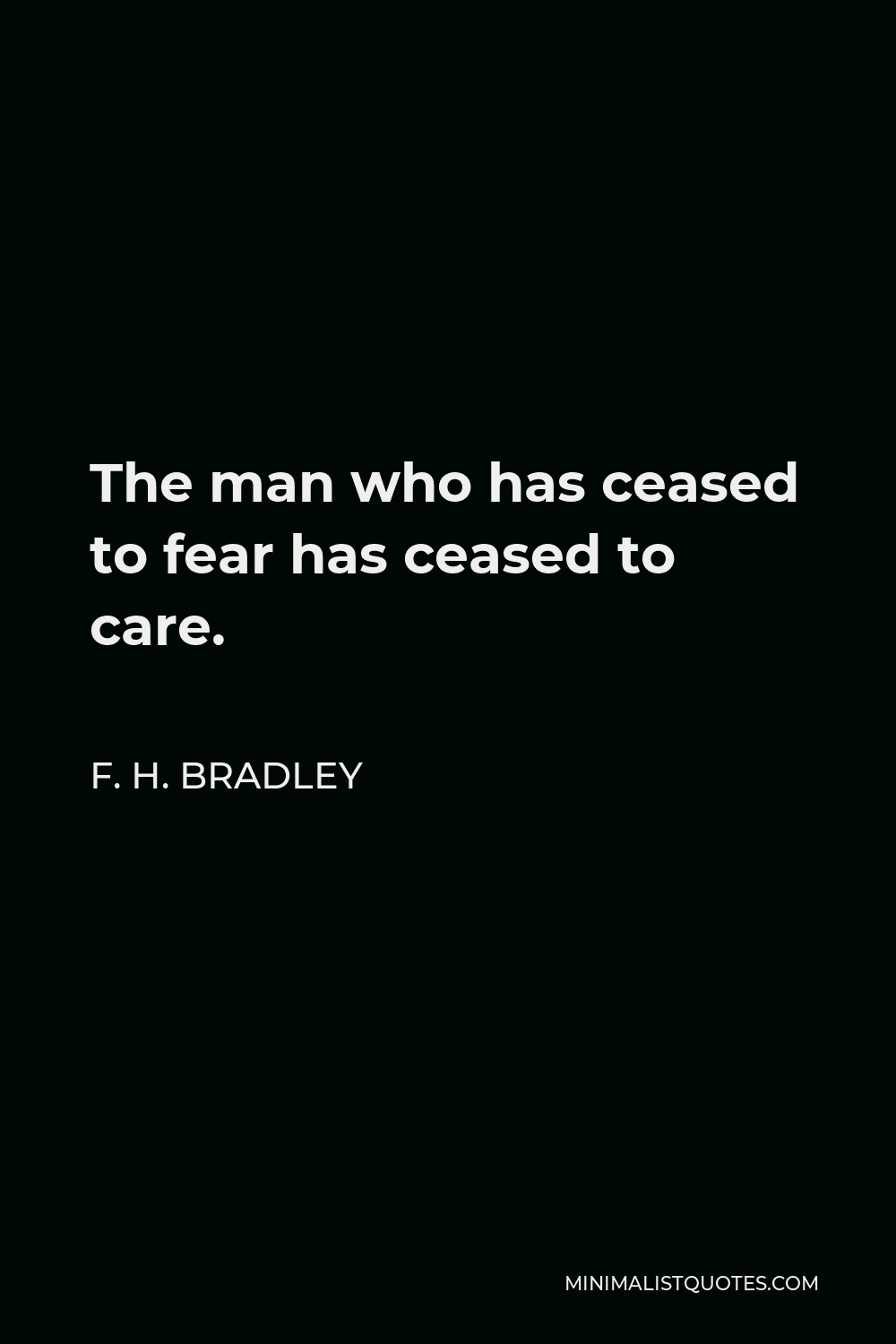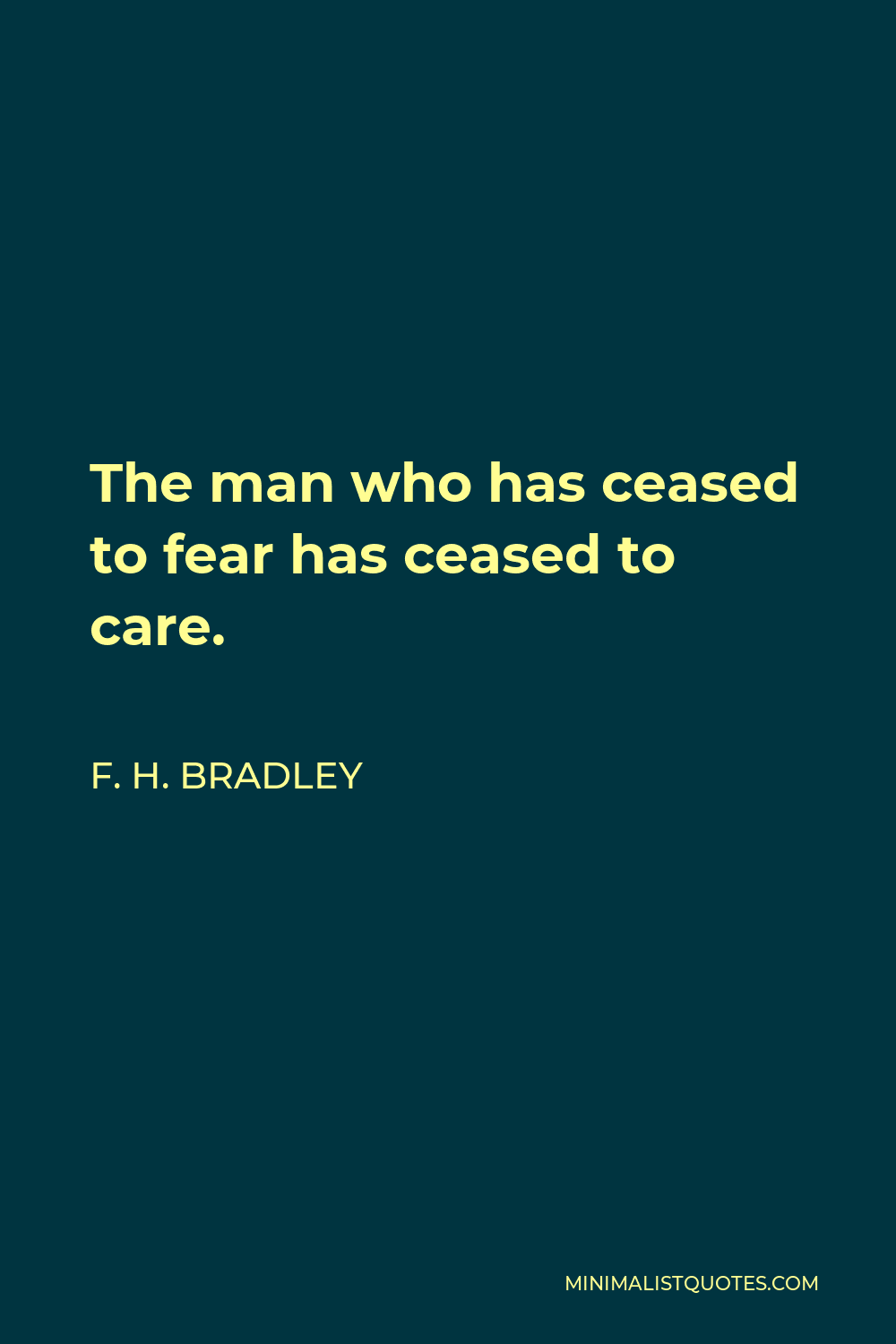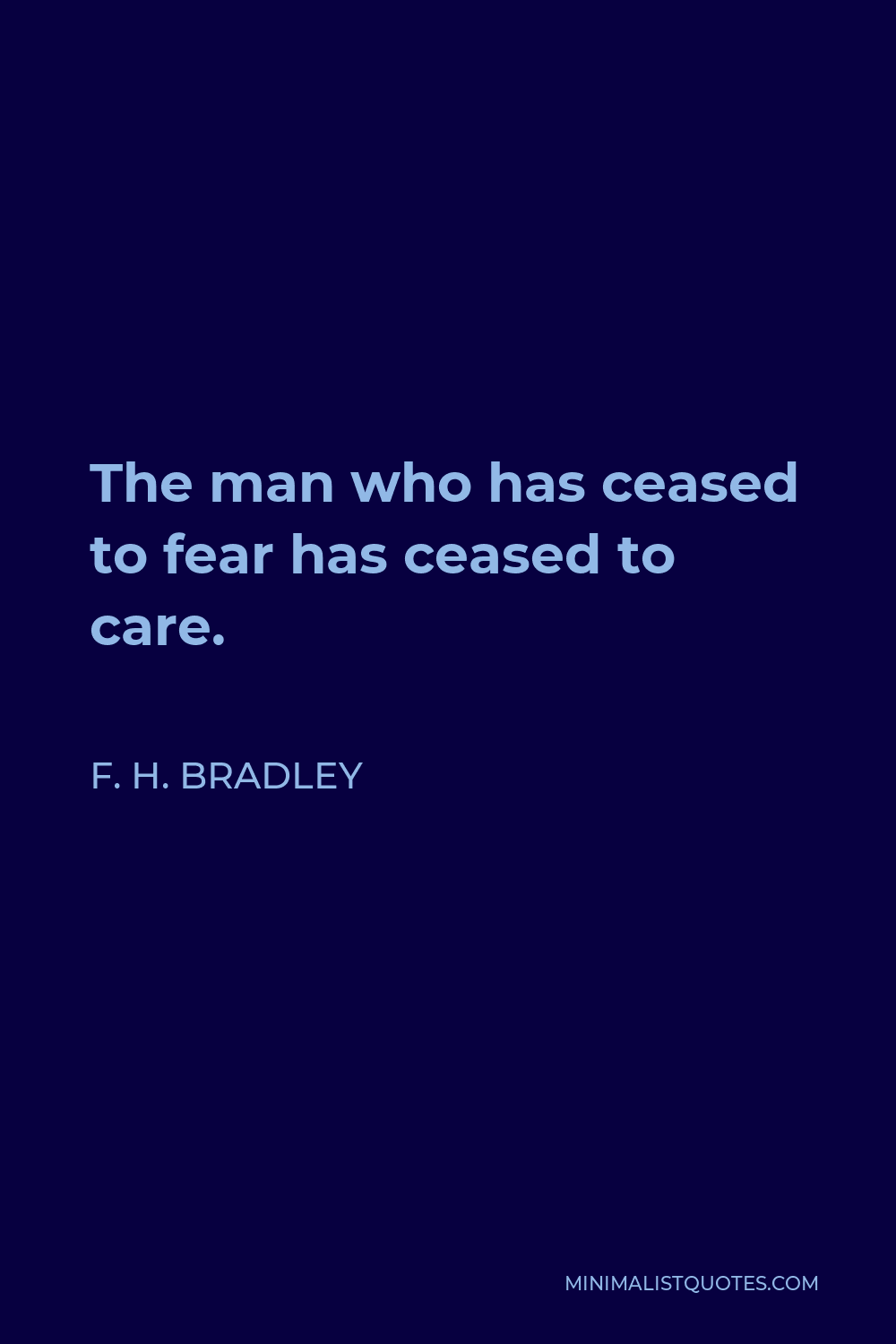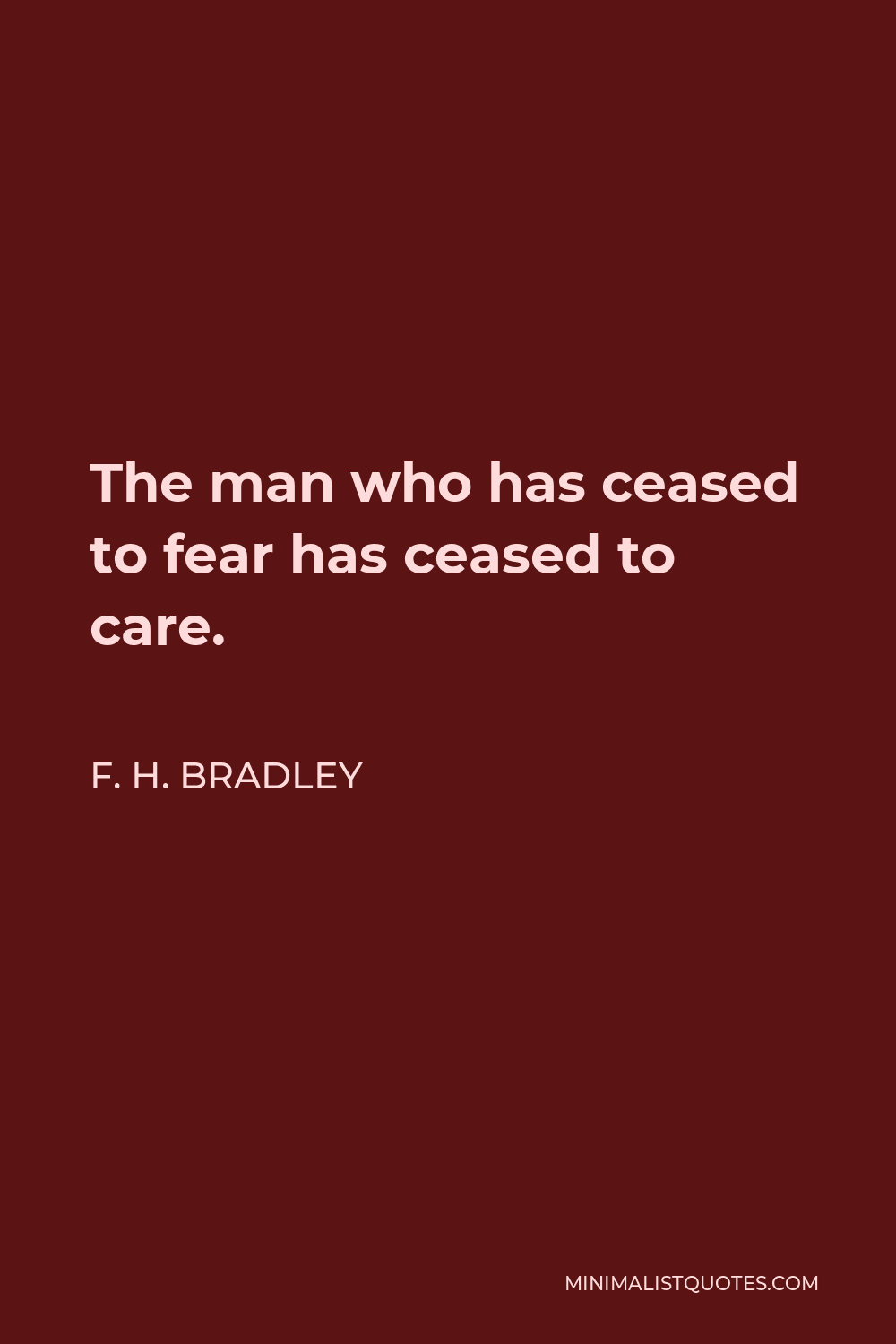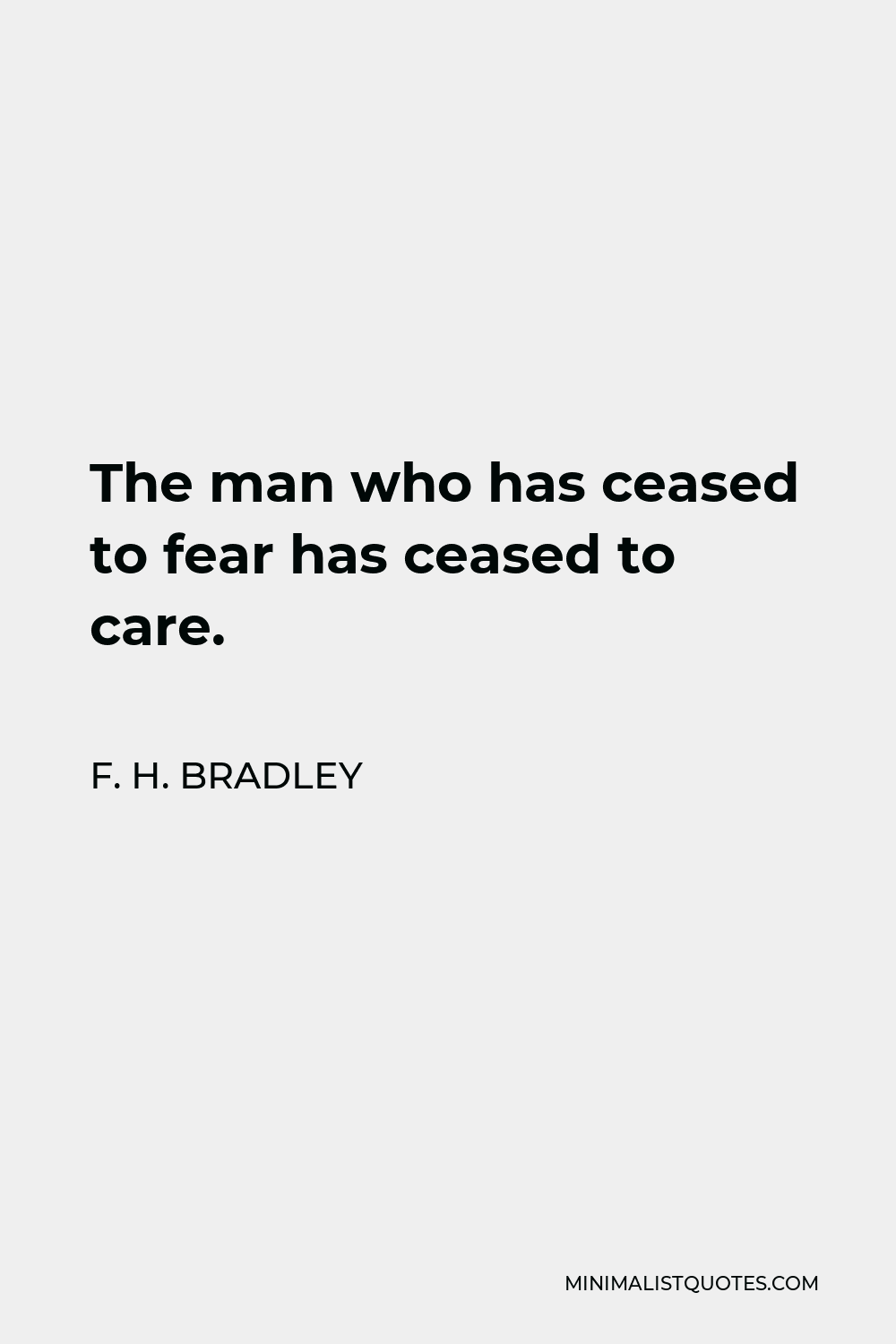My external sensations are no less private to my self than are my thoughts or my feelings. In either case my experience falls within my own circle, a circle closed on the outside… the whole world for each is peculiar and private to that soul.
F. H. BRADLEYThe man who has ceased to fear has ceased to care.
More F. H. Bradley Quotes
-





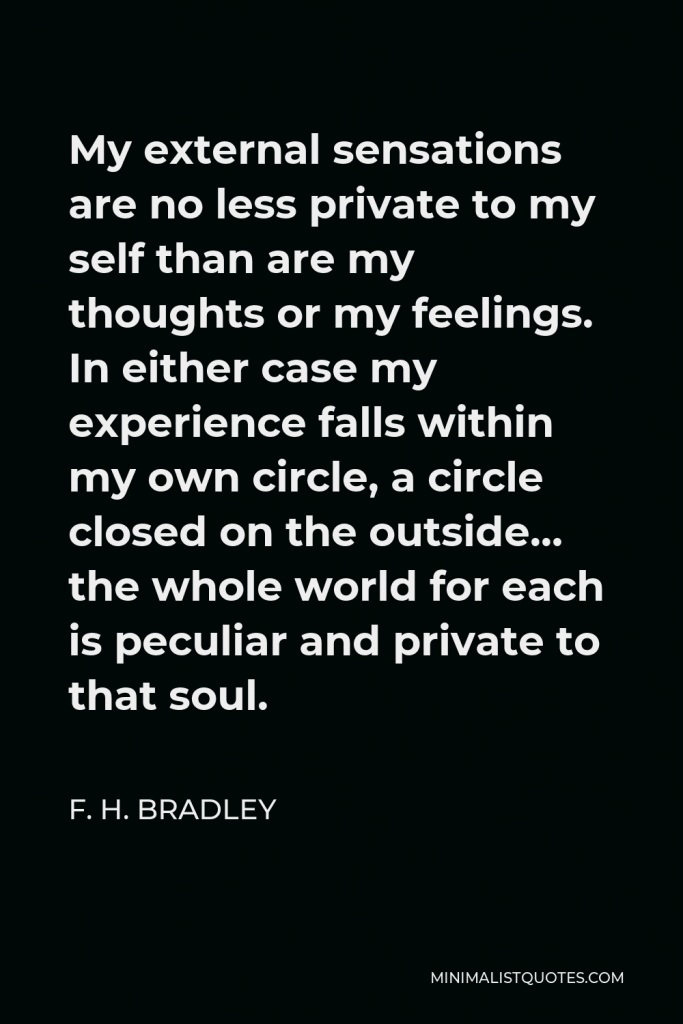

-





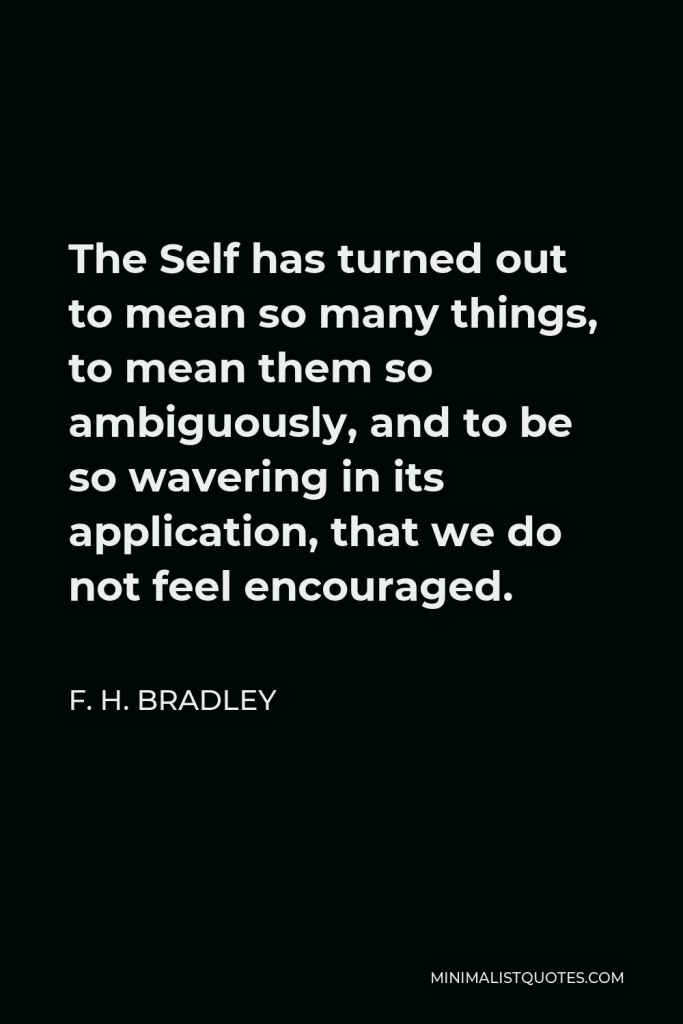

The Self has turned out to mean so many things, to mean them so ambiguously, and to be so wavering in its application, that we do not feel encouraged.
F. H. BRADLEY -





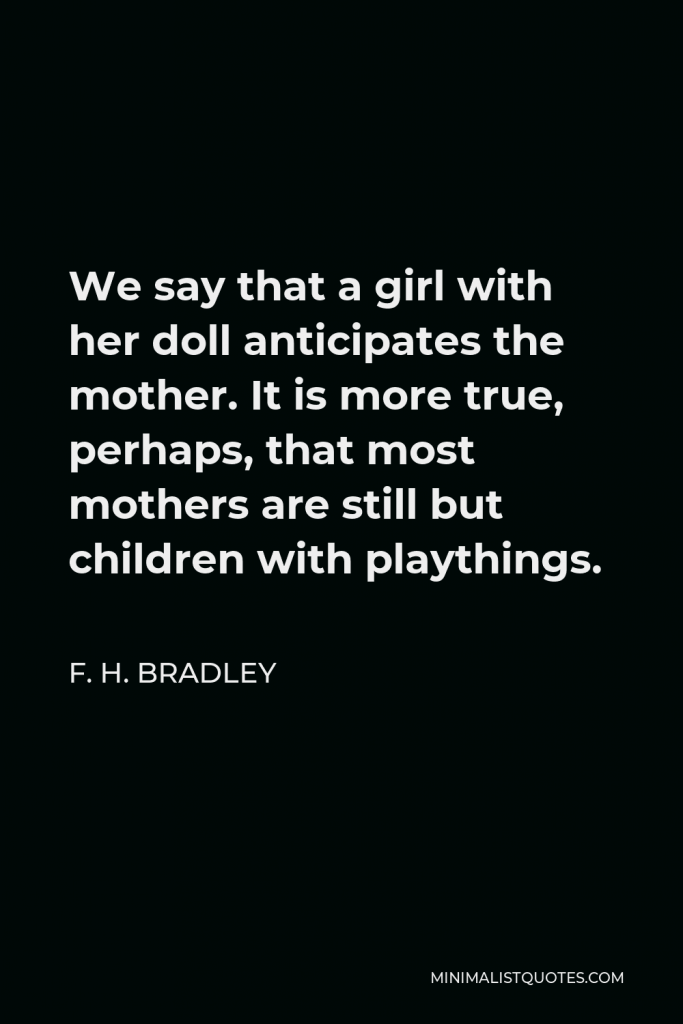

We say that a girl with her doll anticipates the mother. It is more true, perhaps, that most mothers are still but children with playthings.
F. H. BRADLEY -





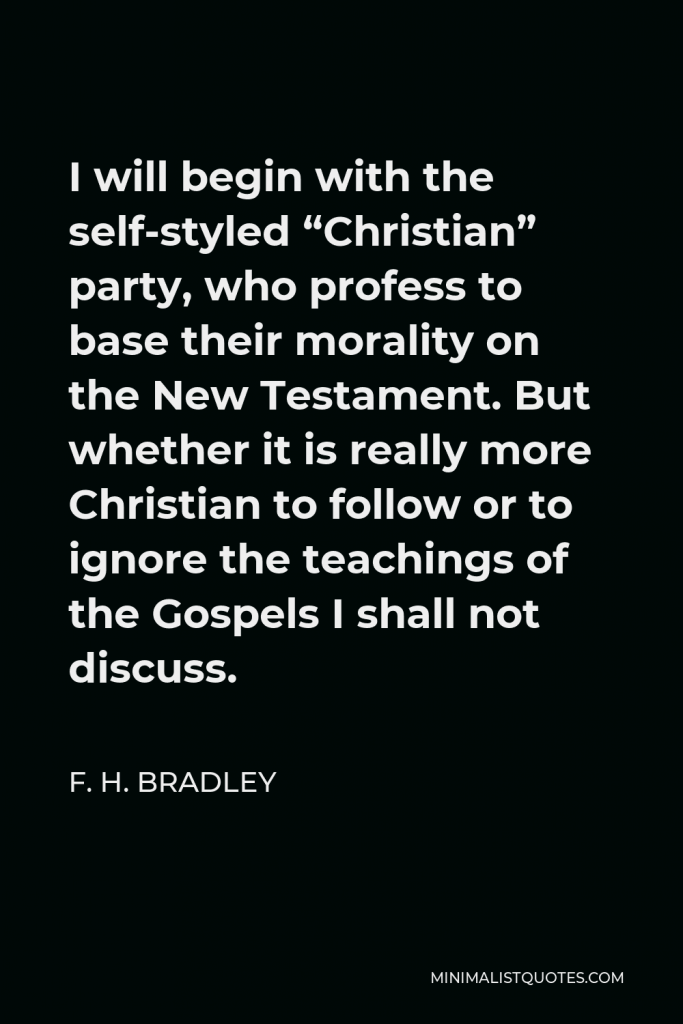

I will begin with the self-styled “Christian” party, who profess to base their morality on the New Testament. But whether it is really more Christian to follow or to ignore the teachings of the Gospels I shall not discuss.
F. H. BRADLEY -





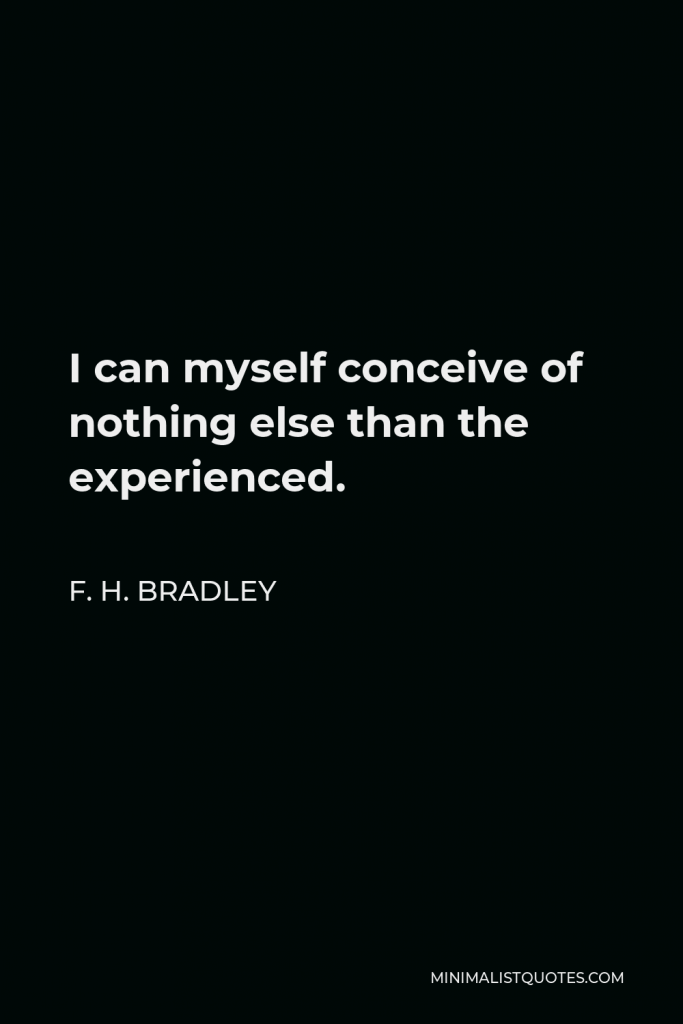

I can myself conceive of nothing else than the experienced.
F. H. BRADLEY -





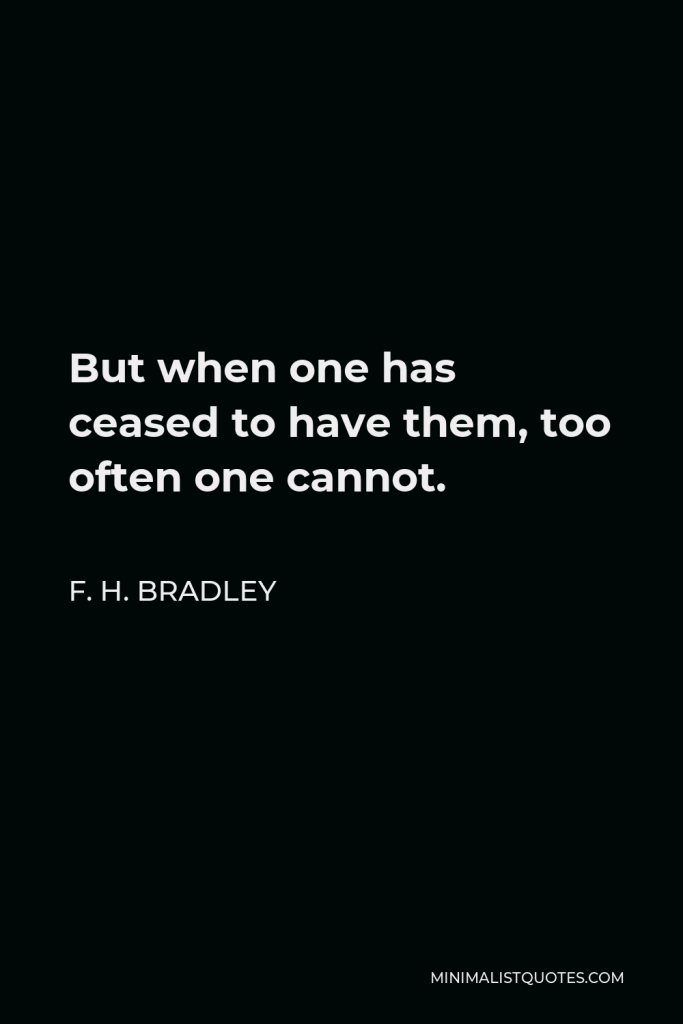

But when one has ceased to have them, too often one cannot.
F. H. BRADLEY -





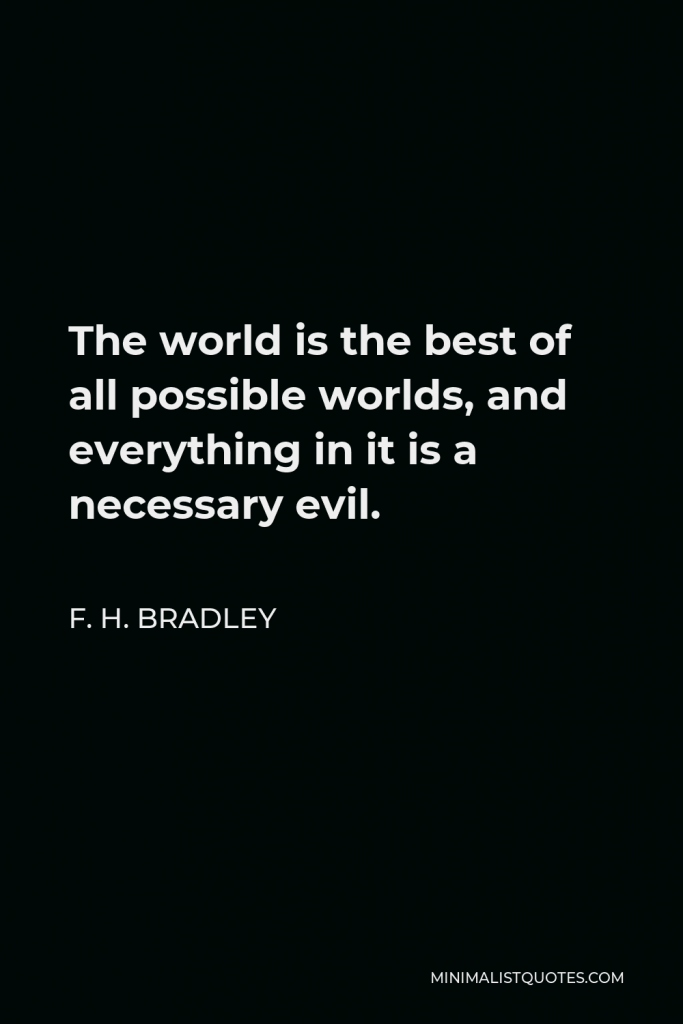

The world is the best of all possible worlds, and everything in it is a necessary evil.
F. H. BRADLEY -





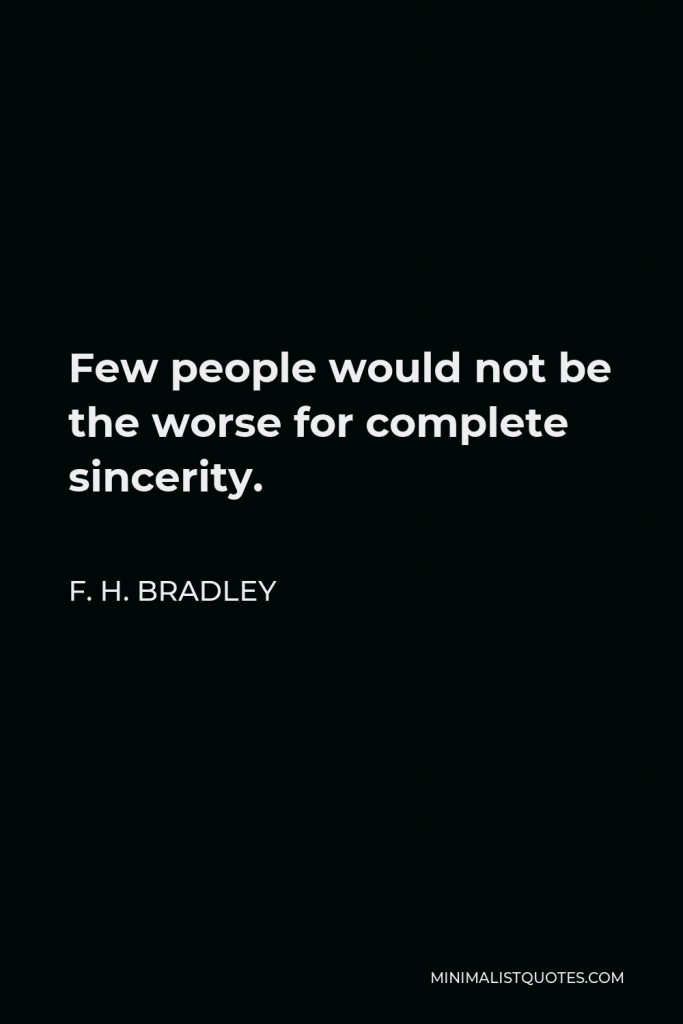

Few people would not be the worse for complete sincerity.
F. H. BRADLEY -





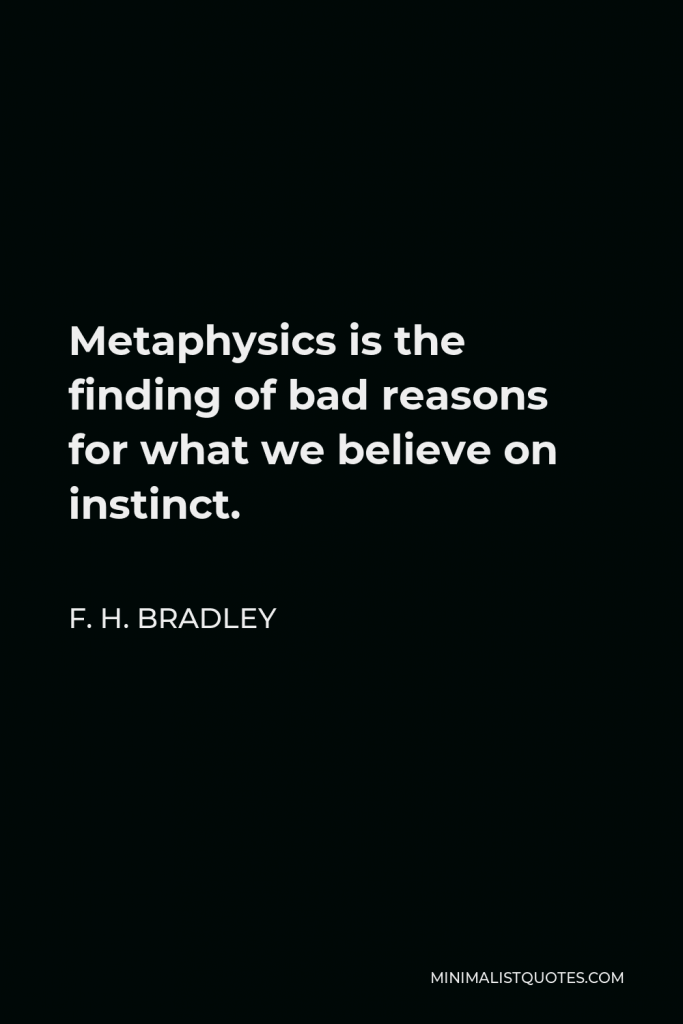

Metaphysics is the finding of bad reasons for what we believe on instinct.
F. H. BRADLEY -





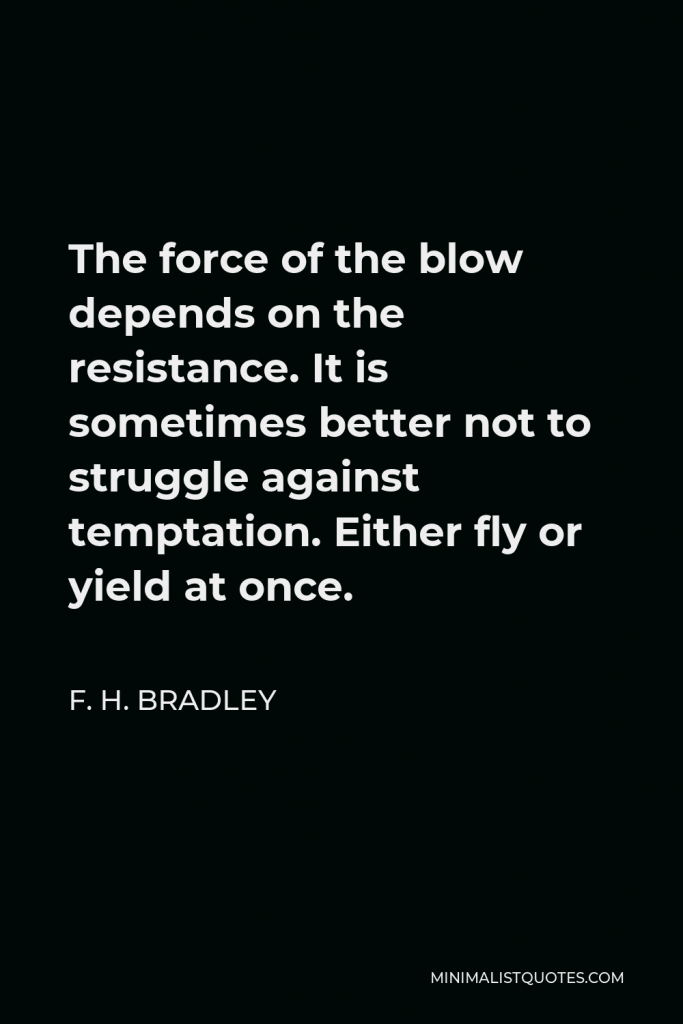

The force of the blow depends on the resistance. It is sometimes better not to struggle against temptation. Either fly or yield at once.
F. H. BRADLEY -





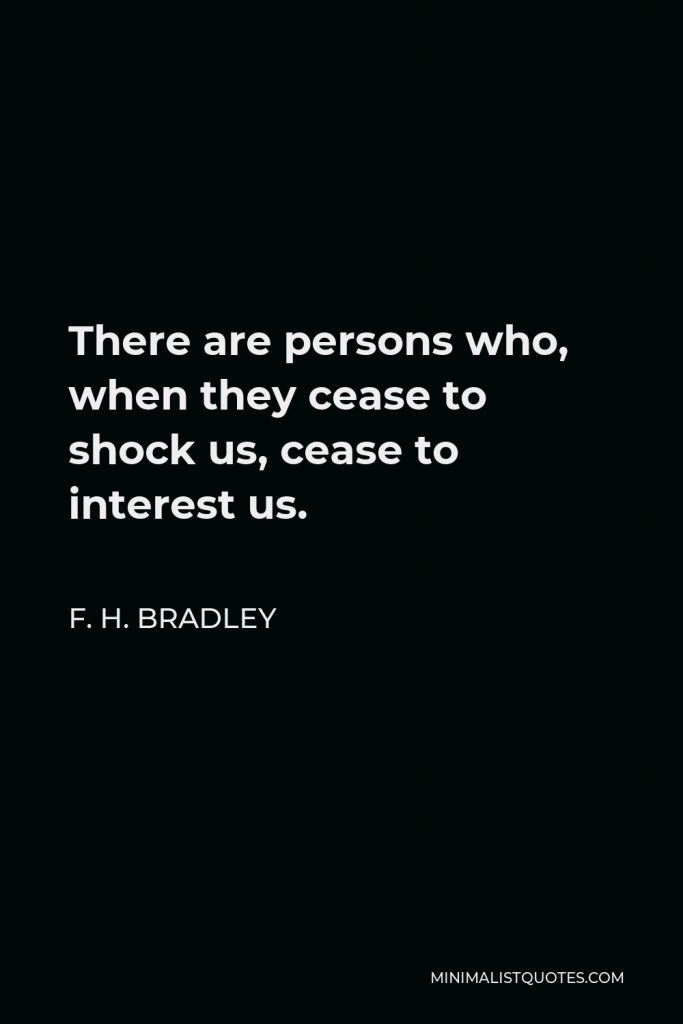

There are persons who, when they cease to shock us, cease to interest us.
F. H. BRADLEY -





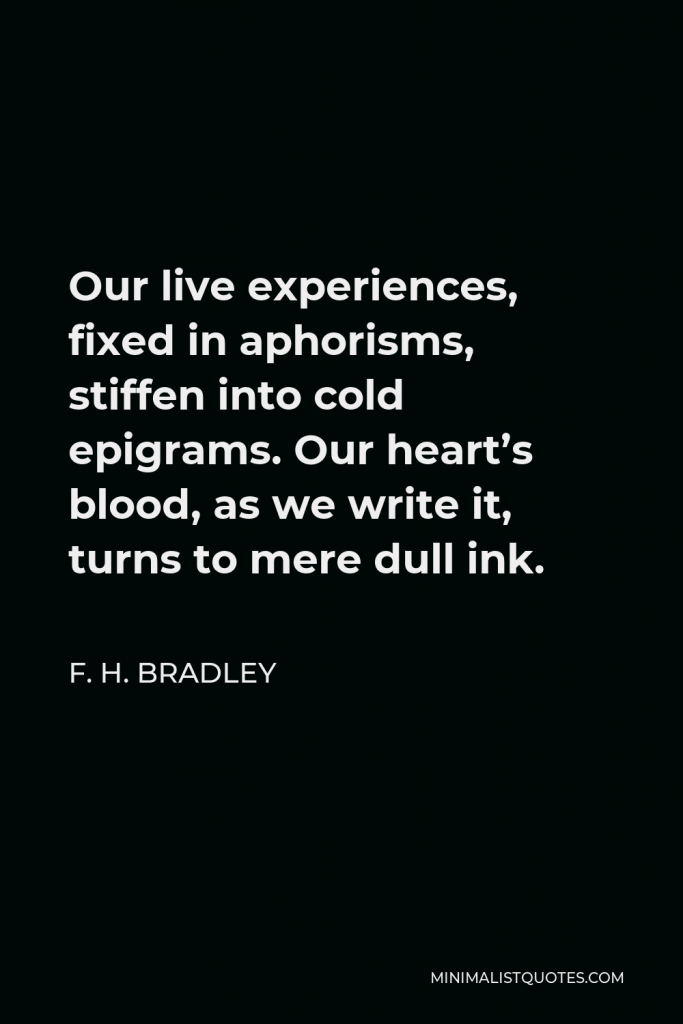

Our live experiences, fixed in aphorisms, stiffen into cold epigrams. Our heart’s blood, as we write it, turns to mere dull ink.
F. H. BRADLEY -





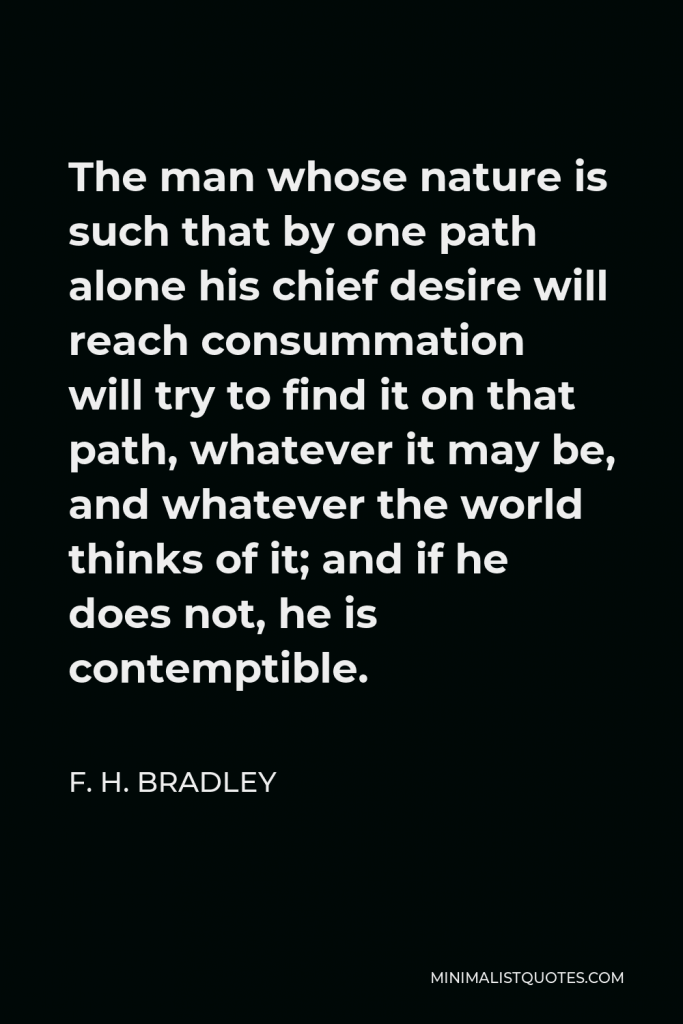

The man whose nature is such that by one path alone his chief desire will reach consummation will try to find it on that path, whatever it may be, and whatever the world thinks of it; and if he does not, he is contemptible.
F. H. BRADLEY -





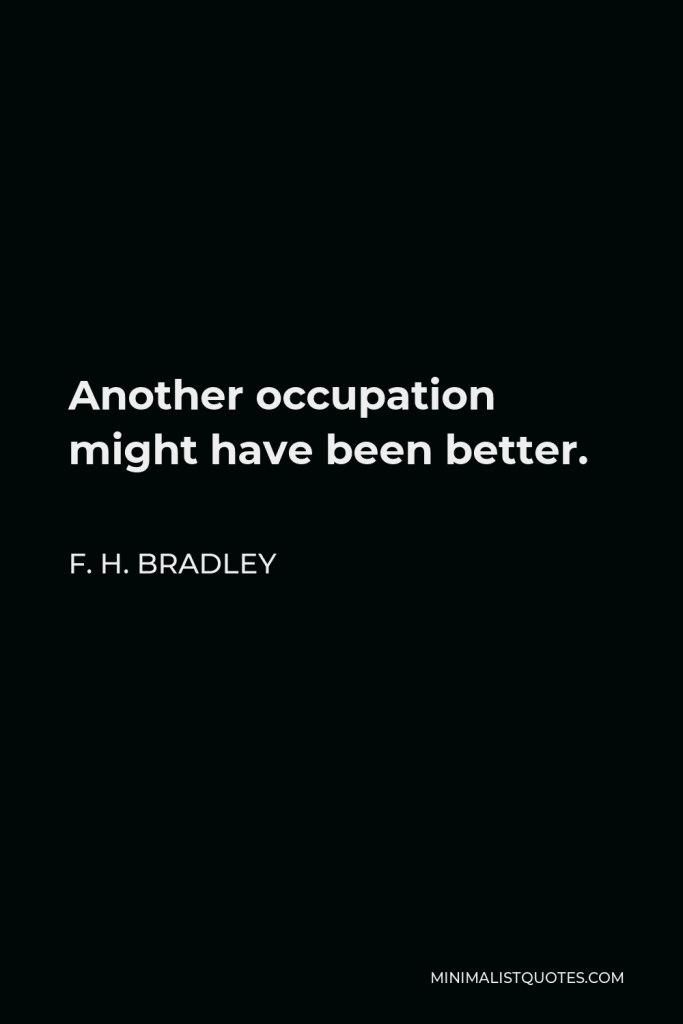

Another occupation might have been better.
F. H. BRADLEY -





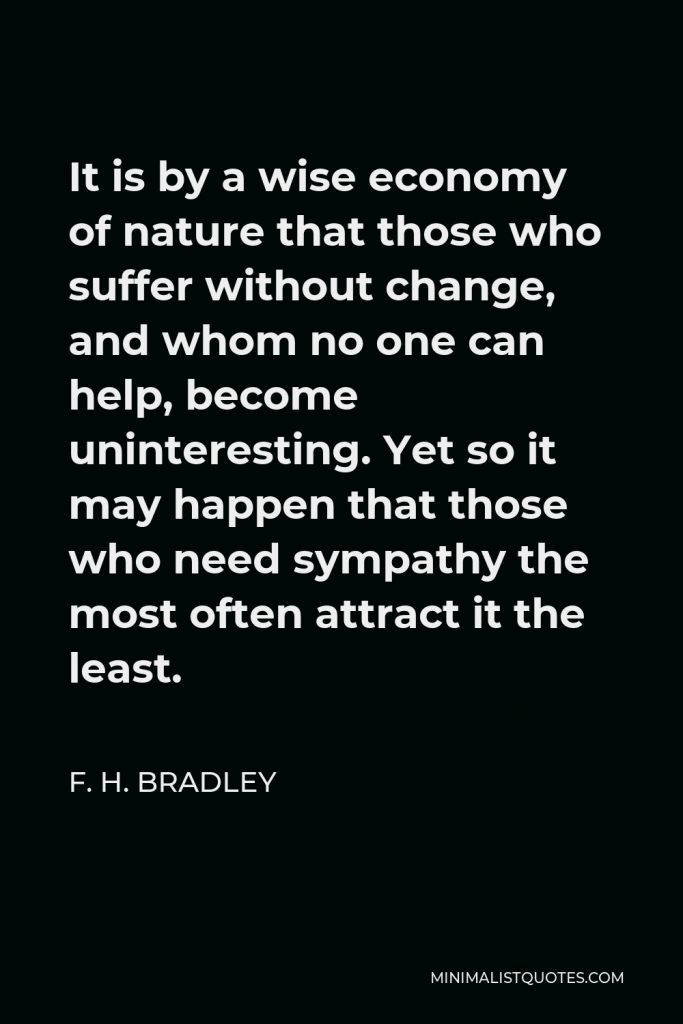

It is by a wise economy of nature that those who suffer without change, and whom no one can help, become uninteresting. Yet so it may happen that those who need sympathy the most often attract it the least.
F. H. BRADLEY -





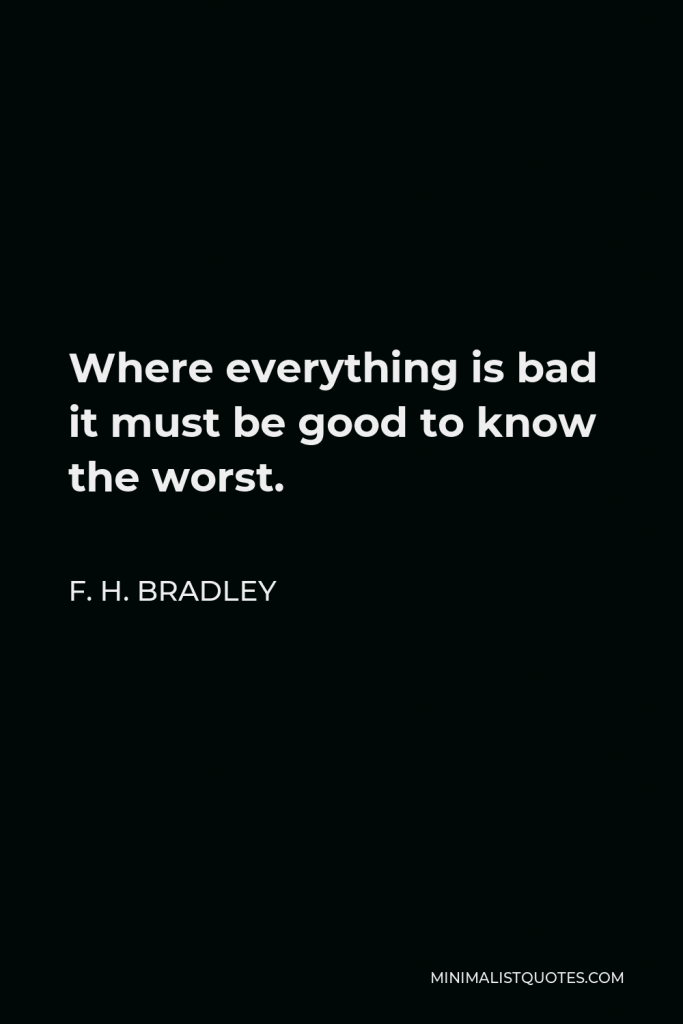

Where everything is bad it must be good to know the worst.
F. H. BRADLEY
